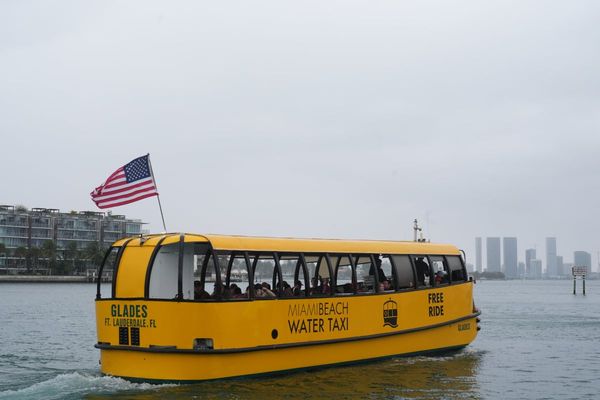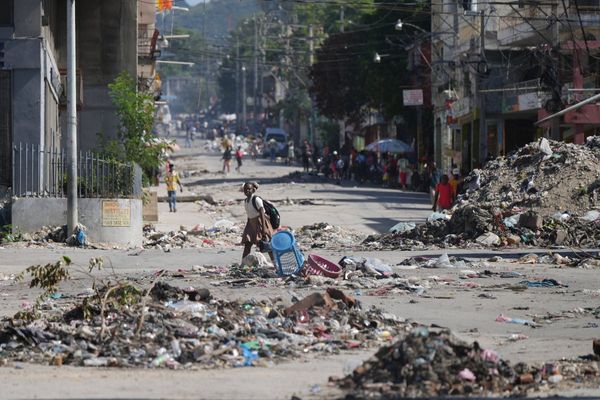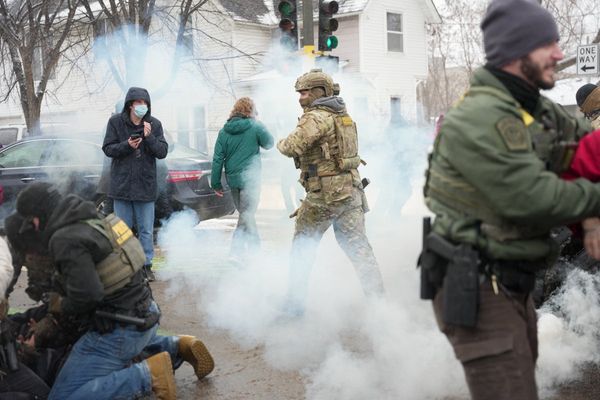
Britain’s King Charles III arrived in Northern Ireland on Tuesday as part of a UK tour to receive condolences after the death of his mother, Queen Elizabeth II. FRANCE 24 speaks to Fabrice Mourlon, a professor of British and Irish civilization at the Sorbonne University, on the importance of the visit.
As he tours the four corners of his fractious new kingdom, Charles III faces the most testing task of reconciliation in Northern Ireland during his visit to the region.
Sinn Fein, a party in favour of reunification of the island, stayed away from an accession proclamation ceremony in Northern Ireland on Sunday, September 11, but said it will attend other official events during the official period of mourning for the queen.
The new monarch meets the region's feuding political leaders at the royal estate of Hillsborough Castle, south of Belfast, on Tuesday. He will receive tributes from pro-UK parties and respectful sympathies of nationalists, including from the speaker of the Northern Ireland Assembly.
The visit follows a few incidents in Northern Ireland on Thursday, when the news of Queen Elizabeth’s death was greeted by people honking car horns in celebration in Derry, a Northern Irish city also known as Londonderry, which was marked by the 1972 Bloody Sunday massacre, when British police shot unarmed protesters, killing 14 people.
Fabrice Mourlon, professor of British and Irish civilization at the Sorbonne Nouvelle University and a specialist in Northern Ireland, believes Charles III's visit could rather calm the political tensions between the DUP unionists – who are loyal to the crown – and the Sinn Fein Republicans, who want a reunification with the Republic of Ireland.
FRANCE 24: Why were there jubilant reactions to the announcement of the death of Queen Elizabeth II in Northern Ireland, particularly in Derry?
Fabrice Mourlon: There may have been some reactions against the queen, but I do not think we should focus on these incidents, because Michelle O'Neill [Sinn Fein’s vice president who is in line to become Northern Ireland's first minister] still signed the book of condolences. This gesture is highly significant.
The incidents in Derry remain isolated. Derry was where Bloody Sunday occurred and the city suffered a great deal during the Northern Irish conflict. So, it is understandable that people are unhappy and attack symbols. It’s important to note that its inhabitants have always been forgotten compared to the rest of Northern Ireland. The city has very little infrastructure, so tensions are always more overtly manifested. It was in Derry, in 2019, that journalist Lyra McKee was shot by Republican dissidents during a riot.
What legacy does Elizabeth II leave to the people of Northern Ireland? Was she appreciated in the region?
Queen Elizabeth II was the first British monarch to visit the Republic of Ireland in 2011, in a very powerful gesture of reconciliation that left a lasting impression. At the time, in Dublin, she made a historic speech. That day, she began with words in Irish. Videos of the time show the Irish president at the queen’s side letting out a cry of surprise because she was not expecting it. No one had done this before Elizabeth II. Her speech was clearly aimed at easing the tense relations between Britain and Ireland since the partition. The gesture was welcomed by many, including in the ranks of Sinn Fein.
The following year, in 2012, the queen met with Martin McGuinness, then deputy prime minister of Northern Ireland. He was a former member of the IRA. She shook his hand with a big smile, even though the IRA had murdered one of her close cousins, Lord Louis Mountbatten, who died in a bomb attack in 1979.
What challenges await King Charles III? Does he have a role to play in the government crisis between the DUP unionists and the Sinn Fein Republicans?
With his Brexit, Boris Johnson has reignited tensions between the DUP and Sinn Fein in Northern Ireland. The former British prime minister had promised the unionists that he would withdraw from the Northern Ireland Protocol once in power. But he did not. [The agreement, signed between London and Brussels to address the border issue between British Northern Ireland and Republic of Ireland, an EU member, after Brexit, creates a de facto customs border with Britain, which displeases the most radical unionists].
Since then, Northern Ireland has been paralysed, as the DUP refused to govern with Sinn Fein in a display of its opposition to the protocol. Their fear is that they will be separated from the United Kingdom. In this context, King Charles III’s visit is symbolic. I think he will try to calm tensions, continuing the work of his mother, whose line he has promised to follow.
This article was translated from the original in French.







